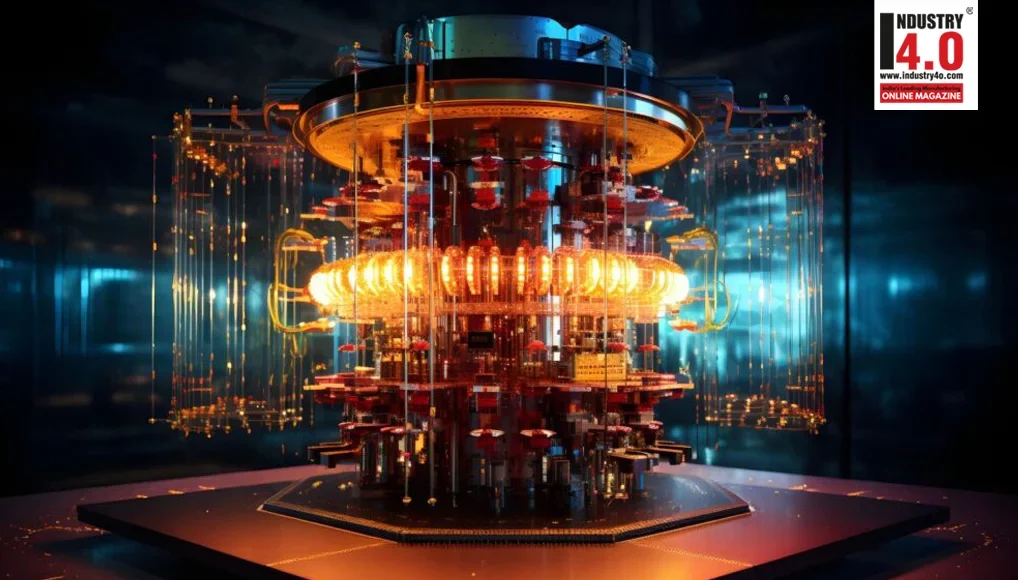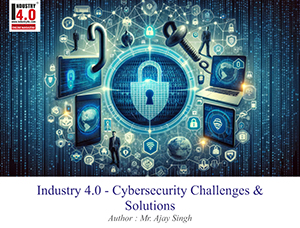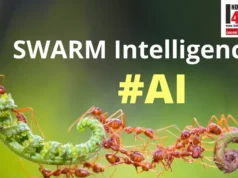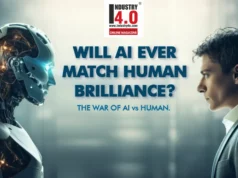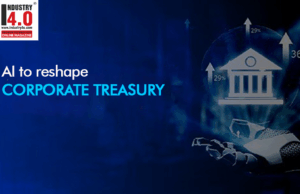The Quantum Advantage : Supercharging AI, IoT, and Robotics in Industry 4.0 & 5.0
Prof. Ajay Singh is a former CEO of an award-winning fintech firm. He is an IOD Fellow and cybersecurity expert. He has authored multiple books and serves as a mentor, professor, and advisor globally. He holds key roles in academic and industry cybersecurity committees, shaping AI, Quantum Computing and security policies.
A wave of new technologies is driving major change across industries. Technologies such as AI, IoT and Robotics have sparked a burst of innovations that are transforming manufacturing processes by enabling greater automation, improving efficiency, and enhancing precision. These advancements are streamlining operations, reducing costs, and driving smarter decision-making through data-driven insights. As factories become more interconnected, predictive maintenance, real-time monitoring, and adaptive production systems are reshaping how goods are manufactured, leading to increased productivity and innovation across industries.
AI, IoT, and Robotics have seamlessly integrated to create the foundation for Smart Manufacturing and Industry 4.0.Together, these technologies are transforming manufacturing into a smarter, adaptive, and self-optimizing ecosystem. Industry 4.0 is not just about automation, but it is also about unlocking new levels of efficiency, innovation, and sustainability.
The world is now on the cusp of a new computing paradigm- quantum computing – that promises to revolutionize industries by solving complex problems at unprecedented speeds, enabling breakthroughs in artificial intelligence, cybersecurity, material discovery, and optimization that were previously impossible with classical computers. As quantum technology advances, it will drive more innovation across sectors, shaping a smarter, more efficient, and interconnected future.
Quantum computing works at a sub-atomic level using quantum bits (qubits) to perform complex calculations much faster than classical computers by leveraging principles like superposition and entanglement. Classical computers use bits, which are either 0 or 1, like flipping a light switch on or off. Quantum computers use qubits, which can be 0, 1, or both at the same time—this is called superposition. Imagine a spinning coin; until it lands, it is both heads and tails at the same time. Because qubits can exist in multiple states simultaneously, quantum computers can process multiple possibilities at the same time, making them much faster for certain complex calculations compared to classical computers. Qubits can be entangled, meaning that when one qubit’s state changes, the other changes instantly, no matter how far apart they are. This allows for super-fast communication and problem-solving compared to classical computing, where bits operate independently.
Thanks to superposition and entanglement, quantum computers can solve problems that would take classical computers millions of years such as optimizing complex computations, cracking encryption, designing new materials, and simulating molecules for medical research. Quantum computers do not just do one thing at a time like classical computers; they can explore many possibilities at once, making them incredibly powerful for solving tough problems. One great example is vehicle production sequencing. Ford used quantum computing to optimize the sequencing of its Ford Transit production line, a task that classical computers struggled with due to the complexity of constraints across body shops, paint shops, and assembly lines. Using D-Wave’s quantum computing technology, Ford reduced the scheduling time for 1,000 vehicles per run from 30 minutes to less than five minutes. This optimization helped Ford increase production throughput, minimize unplanned maintenance, and adapt quickly to changes in demand—something that would take classical computers significantly longer to compute. So, when it comes to rapidly solving highly complex optimization problems, making manufacturing more efficient and adaptable, quantum computers are the next big thing in high performance computing.
Industry 4.0 focuses on automation, data exchange, AI, IoT, and smart manufacturing. Quantum computing will enhance this paradigm in several key areas:
Supercharging AI Algorithms-Quantum computing will dramatically accelerate AI training, enabling models to process vast datasets exponentially faster. This means better predictions, deeper insights, and smarter automation across industries. For example, quantum-enhanced AI can process individual user preferences to design personalized vehicle features, such as ergonomic seats or custom dashboards.
Enhancing IoT Connectivity-Quantum technology will optimize data flow between IoT devices, ensuring ultra-fast and secure real-time communication. It will also improve sensor networks, helping industries monitor systems more efficiently.
Revolutionizing Robotics-Quantum computing will enable robots to make instant complex decisions, improving precision in assembly lines, medical procedures, and autonomous navigation. It will also enhance machine learning algorithms that power adaptive robotics.
Strengthening Cybersecurity-Quantum cryptography will create unbreakable encryption, protecting AI-driven systems and IoT networks from cyber threats. This ensures secure data transmission across smart factories and connected devices. Quantum communication can enhance the cybersecurity of Industry 4.0 networks, ensuring safe machine-to-machine communication.
Solving Complex Industrial Problems-From optimizing supply chains to designing advanced materials, quantum computing will help industries make better strategic decisions in seconds—something classical computers would take years to process. For example, it can enhance vehicle routing in fleet logistics such as autonomous cars or delivery fleets. Quantum algorithms can also help optimize sourcing, inventory, and delivery routes across global supply chains.
Quantum computing is particularly suited to simulating molecular and material properties, which benefits industries like pharmaceuticals, chemicals, and materials science. Examples of this include designing new polymers or simulating new battery chemistries such as solid-state lithium or hydrogen fuel cells to meet sustainability goals. Quantum computing can also accelerate molecular simulation, cutting down discovery timelines significantly.
By bridging AI, IoT, and Robotics with quantum computing, industries will experience unprecedented efficiency, automation, and security, fuelling the next industrial revolution. At another level quantum computing has the potential to revolutionize Industry 4.0 and 5.0 by solving complex problems that classical computers struggle with.
When it comes to Industry 5.0, it represents a major shift towards environmentally responsible and sustainable production. Companies aim to reduce their carbon footprint, optimize resource usage, and integrate circular economy principles, ensuring less waste and smarter energy use. Here again quantum computing can play a key role in modelling and predicting the impact of disruptions like natural disasters or pandemics and optimizing logistics with carbon footprint minimization as a primary goal.
Quantum computing may still be in its early stages and most current benefits are theoretical or in proof-of-concept phase but given the billions of dollars committed to research and development efforts it is progressing faster than expected. In the meantime, hybrid models (quantum + classical computing) will likely be in play in the near term giving early adopters the quantum advantage.
About the Author:
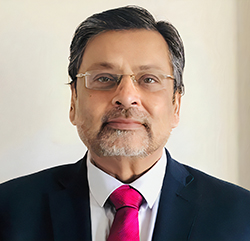
Professor of Practice – Rizvi Institute of Management Studies and Research
Member of the Board of Studies ( Faculty of Science & Technology ) – ICFAI University, Jharkhand
Member of Board of Advisors – WOPLLI Technologies
Member Of The Board Of Advisors – Pace University – Seidenberg School of Computer Science and Information Systems
Prof. Ajay Singh has spent over 35 years in the IT industry in different roles and was the CEO of an award winning fintech company for over a decade. He is a certified corporate director and Fellow of the Institute of Directors. He serves as a Corporate Advisor & Mentor.
Prof. Ajay Singh has a master’s degree from Sheffield-Hallam University, UK and has further specialized in Cybersecurity, Cyber Law, and Cyber Forensics.
Prof. Ajay Singh has authored multiple books on cybersecurity. He is an Award-Winning Finalist for his book CyberStrong (SAGE 2020) at the International Book Awards, American Book Fest 2022. His book Introduction to Cybersecurity-Concepts, Principles, Technologies, and Practices (Universities Press, Orient BlackSwan 2023) is a winner of the Golden Book Award 2024.
Prof. Ajay Singh is a Member of the Academic Advisory Board of the Pace University–Seidenberg School of Computer Science and Information Systems, New York, Member of the Board of Studies, Faculty of Science & Technology, ICFAI University, Jharkhand
Member of IEE Committee on Cybersecurity for Next Generation Connectivity Systems. He is also a visiting professor for Cybersecurity and Entrepreneurship at leading Management Institutes.
Prof. Ajay Singh is Bestowed with the following Licences & Certifications :
https://www.linkedin.com/in/aj
Prof. Ajay Singh is Accorded with the following Honors & Awards :
https://www.linkedin.com/in/prof-ajay-singh-a597111/details/honors/
Prof. Ajay Singh is Volunteering in the following International Industry Associations & Institutions :
https://www.linkedin.com/in/prof-ajay-singh-a597111/details/organizations/
Prof. Ajay Singh can be contacted at :
LinkedIn | E-mail | QDayReady | VendorCyberRisk | LearnCyberSecurity | BeCyberStrong
Prof. Ajay Singh is the author of the following books
Cyber Strong: A Primer on Cyber Risk Management for Business Managers (SAGE Publications, 2020): This book was recognized as an Award-Winning Finalist at the International Book Awards by the American Book Fest in 2022.
An Entrepreneur’s IOD Handbook on Cyber Security (Institute of Directors, India, 2021): A condensed guide tailored for corporate professionals and executive management.
Cybersecurity-Concepts, Principles, Technologies, and Practices (Universities Press, Orient Blackswan, 2023): This work has received the prestigious Golden Book Award in 2024.
Cyber Strong: Cybersecurity and Risk Management (KBI Publishers, 2023).
Cyber Shock: Cyber-Attacks that Shook the World (ATLANTIC,2024) : An exploration of significant cyber incidents and the lessons we can learn from them.
Navigating Supply Chain Cyber Risk, A Comprehensive Guide to Managing Third Party Cyber Risk (Taylor & Francis,2025) By Ariel Evans, Ajay Singh & Alex Golbin.
Cyber Storm: Unleashing the Power of Quantum Computing and AI, (Orient BlackSwan)-Under Publication.
Also read Prof. Ajay Singh earlier article:

